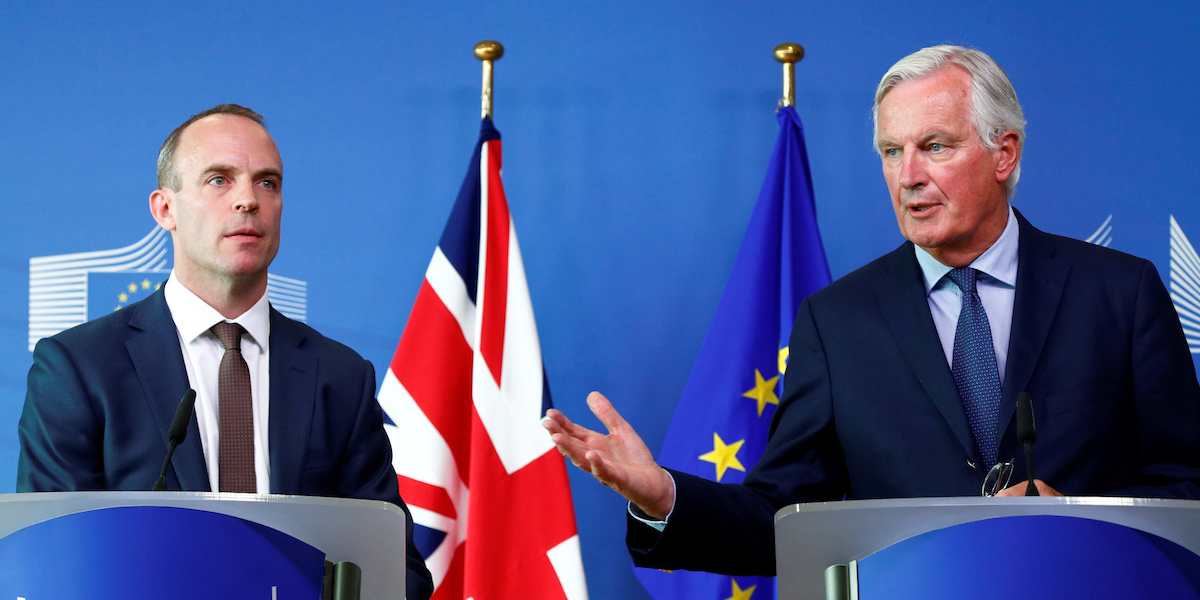- The UK government has told British firms to consider setting up warehouses to store goods in preparation for delays caused by a no deal Brexit.
- Failure to secure a deal would create huge delays due to new checks on customs and regulations.
- The government has published the first batch of notices about no deal Brexit preparations.
- Elsewhere, the notes warn that credit card costs for UK customers could increase significantly, and say tobacco companies would need to create new packaging for cigarettes as the EU owns current copyrights.
- The notes did not make lengthy reference to the rights of EU citizens, the Irish border issue, or the potential need to stockpile medicines.
LONDON – The UK government has told businesses who transport goods to the European Union to consider setting up warehouses for storing goods in preparation for delays caused by a no deal Brexit.
In its first batch of notes on no deal preparation, the government says companies that sell goods to the EU should “consider their role in the EU supply chains,” as no deal would create numerous new checks at the border.
Leaving the EU without a deal would unleash an array of red tape on UK exporters, including declarations on customs and safety, the notes say. British companies would also need new licenses to continue exporting certain goods.
Business should consider acquiring “software” and working with freight and logistics companies to ensure their supply chains are able to cope, the note says. The government has also advised businesses to look at creating warehouses that can be used to store goods which are waiting to cross the border into European markets.
Lorries transporting goods between the UK and the EU currently take around 2 minutes to be checked at British ports. However, this waiting time would increase significantly under a no-deal Brexit. Checks on non-EU lorries currently take around 20 minutes.
'Sensible, measured, and proportionate'

Brexit Secretary Dominic Raab unveiled the government's first set of no deal Brexit notices at a press conference in central London on Thursday morning.
Raab called the measures a "sensible, measured, and proportionate approach to minimising the impact of no deal on British firms, citizens, charities and public bodies."
But he said in the speech that a no-deal scenario could prevail if "the EU doesn't match our ambition and pragmatism."
The notes, which contain 25 of 84 no deal Brexit technical notices the government is set to publish, outline Theresa May's plans to stick to EU rules in areas like medicine and blood in order to prevent chaos in the NHS.
Correspondence between NHS chiefs leaked to the press this week warned that leaving the EU without a deal would put UK hospitals at risk of drug shortages and make the spread of disease more likely.
Credit cards costs will increase

Elsewhere in the notes, the government says that credit card transactions between the UK and EU would increase, meaning online shopping will become more expensive under a no deal scenario.
In a section dealing with individual consumers of financial services said: "The cost of credit card payments between the UK and the EU will likely increase, and these cross-border payments will no longer be covered by the surcharging ban (which prevents businesses from being able to charge consumers for using a specific payment method)."
Scrapping the surcharge, which was introduced last January, could cost up to £166 million a year, according to the Independent.
Tobacco companies will be required to create new packaging for their products as the European Commission owns the copyright for pictures currently printed on cigarette packets.
The notes did not make significant reference to a large number of key risks for a no-deal scenario, including the rights of EU citizens in the UK, the potential need to stockpile medicines, and the dangers associated with a new border on the island of Ireland would be managed.
